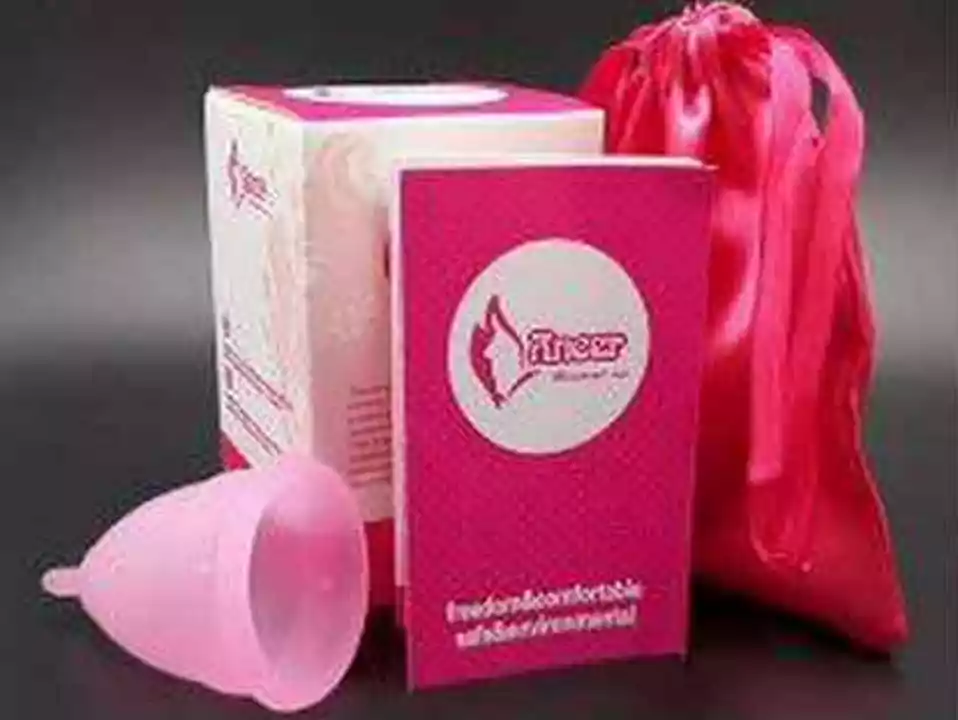Understanding Vaginal Irritation
Before diving into the connection between vaginal irritation and menstrual cups, it is essential to understand what vaginal irritation is and how it affects women. Vaginal irritation refers to the discomfort, itching, burning, or soreness in the vagina that can be caused by various factors such as infections, allergies, or hormonal changes. In this article, we will explore the pros and cons of using menstrual cups and how they can impact vaginal health.
The Growing Popularity of Menstrual Cups
Menstrual cups have gained popularity in recent years as an eco-friendly and cost-effective alternative to pads and tampons. These reusable silicone or rubber cups are inserted into the vagina to collect menstrual fluid, which can then be emptied and washed before reinserting. Many women have found menstrual cups to be a game-changer in their menstrual hygiene routine. However, it's essential to weigh the pros and cons of using these products to make an informed choice about your menstrual health.
Pro: Environmentally Friendly and Cost-Effective
One of the significant advantages of using menstrual cups is their positive impact on the environment. Since they are reusable, menstrual cups produce less waste compared to disposable pads and tampons. This reduces the burden on landfills and contributes to a healthier planet. Additionally, menstrual cups can last for several years, making them a cost-effective option for many women who would otherwise spend a considerable amount of money on disposable menstrual products.
Pro: Reduced Risk of Toxic Shock Syndrome
Toxic Shock Syndrome (TSS) is a rare but severe condition that has been associated with tampon use. Menstrual cups, on the other hand, have not been linked to TSS, making them a safer option for women concerned about this risk. The lower risk of TSS can be attributed to the fact that menstrual cups collect menstrual fluid rather than absorbing it, reducing the likelihood of bacterial growth that can lead to TSS.
Pro: Less Odor and Leakage
Many women report experiencing less odor and leakage when using a menstrual cup compared to pads and tampons. Since the cup forms a seal around the vaginal canal, it prevents menstrual fluid from coming into contact with air, which can cause odor. Additionally, the secure fit of the cup can also minimize the chances of leakage, especially when inserted correctly.
Con: Potential for Vaginal Irritation
Despite the many benefits of menstrual cups, some women may experience vaginal irritation when using them. This irritation can be caused by an allergic reaction to the cup material, improper insertion or removal, or the cup's size or shape not being suitable for the individual. It is crucial to consult with a healthcare professional if you experience persistent irritation after switching to a menstrual cup.
Con: Difficulty with Insertion and Removal
Some women may find the insertion and removal of a menstrual cup challenging, especially when first starting to use the product. It may take time to get used to the process and find the best technique for your body. However, this learning curve is typical and should not be a deterrent for those considering making the switch.
Con: Inconvenience in Public Restrooms
One of the drawbacks of using a menstrual cup is the potential inconvenience when emptying and cleaning the cup in a public restroom. Some women may find it difficult to manage this process discreetly or hygienically in a shared bathroom setting. However, with practice and preparation, it is possible to navigate this challenge effectively.
Con: Not Suitable for All Women
While many women can successfully use menstrual cups, they may not be suitable for everyone. Women who have certain medical conditions, such as a prolapsed uterus or vaginal stenosis, may be advised against using a menstrual cup. It's essential to consult with a healthcare professional to determine whether a menstrual cup is appropriate for your specific situation.
Finding the Right Fit and Making an Informed Decision
Ultimately, the decision to use a menstrual cup will depend on your individual needs and preferences. It is crucial to research different cup sizes, shapes, and materials to find the best fit for your body. If you experience persistent vaginal irritation or other issues with your menstrual cup, consult a healthcare professional for guidance. By weighing the pros and cons, you can make an informed decision about whether a menstrual cup is the right choice for you and your menstrual health.







ahmad matt
June 1, 2023 AT 23:14Yo, let me cut the fluff – menstrual cups are a double‑edged sword that can turn a simple period into a battlefield of irritation and triumph. The silicone can feel like a foreign invader if you’re not careful, and the learning curve is a roller‑coaster that can leave you feeling slapped by a rubber band. Yet the eco‑points are legit, you’re basically saving a landfill while saving pennies on your wallet. If you’re not willing to wrestle with insertion, you might as well stick to the disposable parade. Bottom line: know your anatomy, pick the right size, and stop whining about “just a cup.”
kristine ayroso
June 3, 2023 AT 15:46Look, i get that the cup can feel weird at first but trust me you’ll get the hang of it – just dont give up after the first panic attck. i switched after a month of leeking tampons and now i’m saved both money and cringe. you just need a lil patience, a good grip and maybe a frend to show you the ropes. it’s not rocket science, it’s just your body learning a new trick. keep at it, you’ll thank yourself later.
Ben Small
June 5, 2023 AT 09:26Man, the energy boost you get from ditching the monthly trash run is insane! I felt like a superhero the first week I went cup‑free – no more midnight pad changes, no more stinky surprises. Just remember to fold it right and give yourself a high‑five when you pull it out clean. If you’re still on the fence, try a mini‑cup first and see how the vibe feels. You’ll be amazed at how fast it becomes second nature.
Dylan Hilton
June 7, 2023 AT 03:06Quick grammar check: “menstrual cup” is singular, “menstrual cups” plural – keep that consistent. Also, “irritation” doesn’t need an article unless you’re specifying “the irritation”. Otherwise, your article reads solid, just watch for dangling modifiers. Keep the sentences crisp and the points clear, and you'll keep readers hooked.
Christian Andrabado
June 8, 2023 AT 20:46Honestly, this article could use a tone‑down on the drama. The facts are fine but the language feels over‑the‑top, and the warnings about irritation are exaggerated. A cup is a cup – if you install it correctly there’s hardly any risk. Let’s stay factual and skip the melodrama.
Chidi Anslem
June 10, 2023 AT 14:26From a cultural perspective, the rise of menstrual cups reflects a broader shift toward sustainable personal care worldwide. Many societies still view menstruation as taboo, yet the cup's discreet design can help normalize open conversation. It’s fascinating to see how different regions adapt the technology – some prefer softer medical‑grade silicone, others experiment with TPE blends for comfort. The key is respecting local preferences while promoting education about proper use.
Holly Hayes
June 12, 2023 AT 08:06i dont think u get it – these cups are overhyped and not for everyone. some ppl have weird anatomy and cant fit them so its just another way to make u feel bad about ur body. stop pushing this as a must‑have, its not a moral imperative.
Penn Shade
June 14, 2023 AT 01:46Let’s get real: the “pros” list reads like a marketing brochure, while the “cons” are tossed in as an afterthought. If you’re serious about vaginal health, you need to weigh the material safety, the suction pressure, and the potential for micro‑tears, not just the environmental bragging rights. There’s no substitute for a doctor’s advice when you notice persistent irritation.
Jennifer Banash
June 15, 2023 AT 19:26In light of the evidence presented, I must emphatically advise discontinuation of cup usage pending professional consultation.
Stephen Gachie
June 17, 2023 AT 13:06Considering the physiological nuances of the vaginal ecosystem, one cannot dismiss the impact of foreign objects on mucosal integrity. The silicone surface, while inert for many, may harbour microscopic imperfections that provoke an immune response. Users often report a subtle burning sensation that escalates with prolonged wear. The act of insertion, if performed without adequate lubrication, can cause micro‑abrasions that serve as entry points for opportunistic bacteria. Moreover, the suction created by the cup can alter local blood flow, potentially leading to hypoxic stress in the surrounding tissue. Proponents argue that the cup reduces the risk of TSS, yet TSS remains an exceedingly rare event irrespective of product choice. Environmental concerns, although valid, should not eclipse personal comfort and safety. A study on material biocompatibility suggests that medical‑grade silicone meets ISO standards, but individual sensitivities vary considerably. The learning curve often masks early signs of irritation, causing users to attribute discomfort to unrelated factors. Public restroom logistics, while inconvenient, do not inherently increase infection risk if proper hygiene is observed. In contrast, tampons may introduce absorbent fibers that disrupt the natural pH balance more significantly. Ultimately, the decision hinges on a cost‑benefit analysis that integrates personal health history, anatomical considerations, and lifestyle preferences. Consulting a gynecologist before transitioning to a cup can prevent misdiagnosis of underlying conditions. Continuous monitoring of symptoms is essential to differentiate transient adaptation from chronic pathology. Therefore, an informed, cautious approach is advisable for anyone contemplating this menstrual management method.